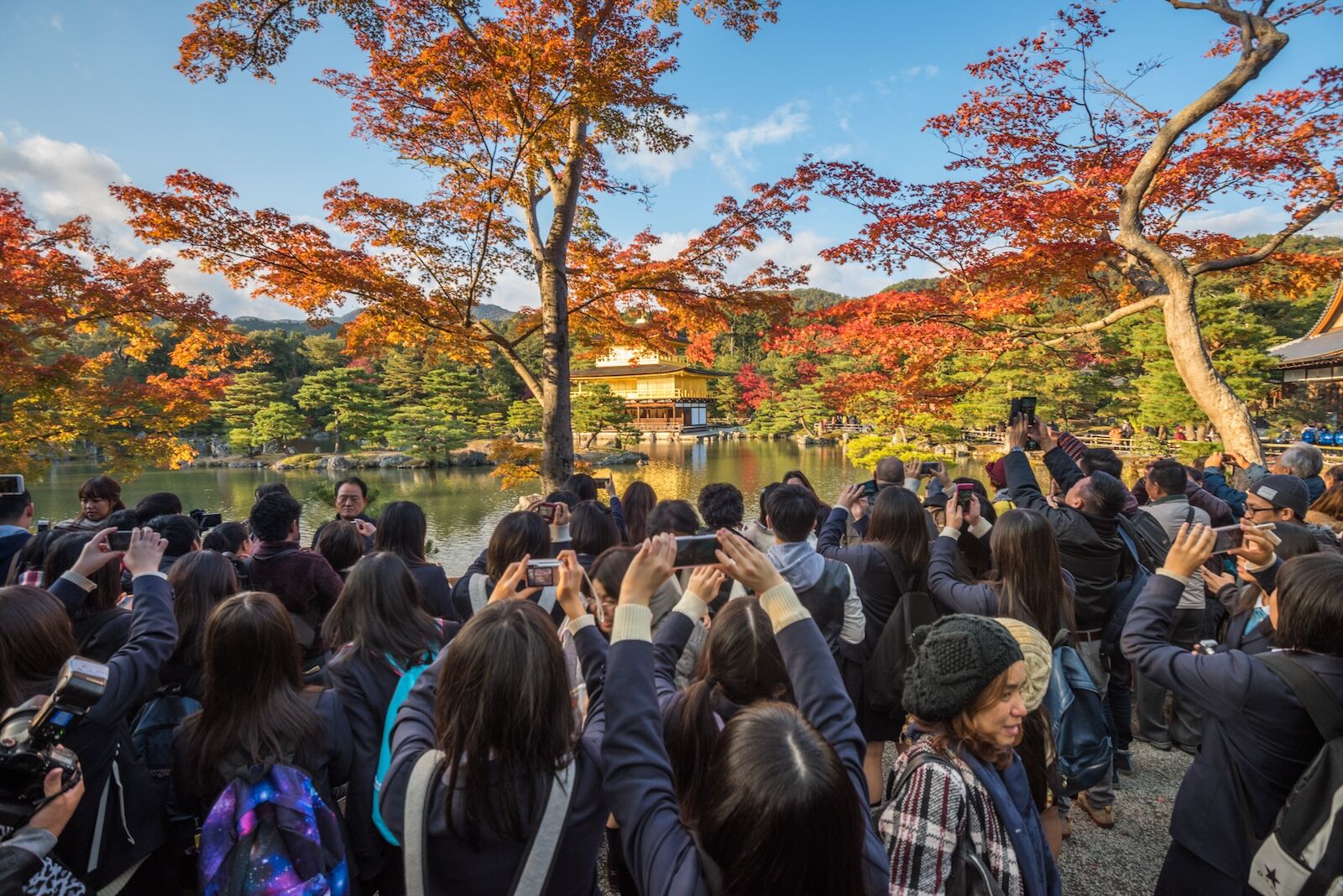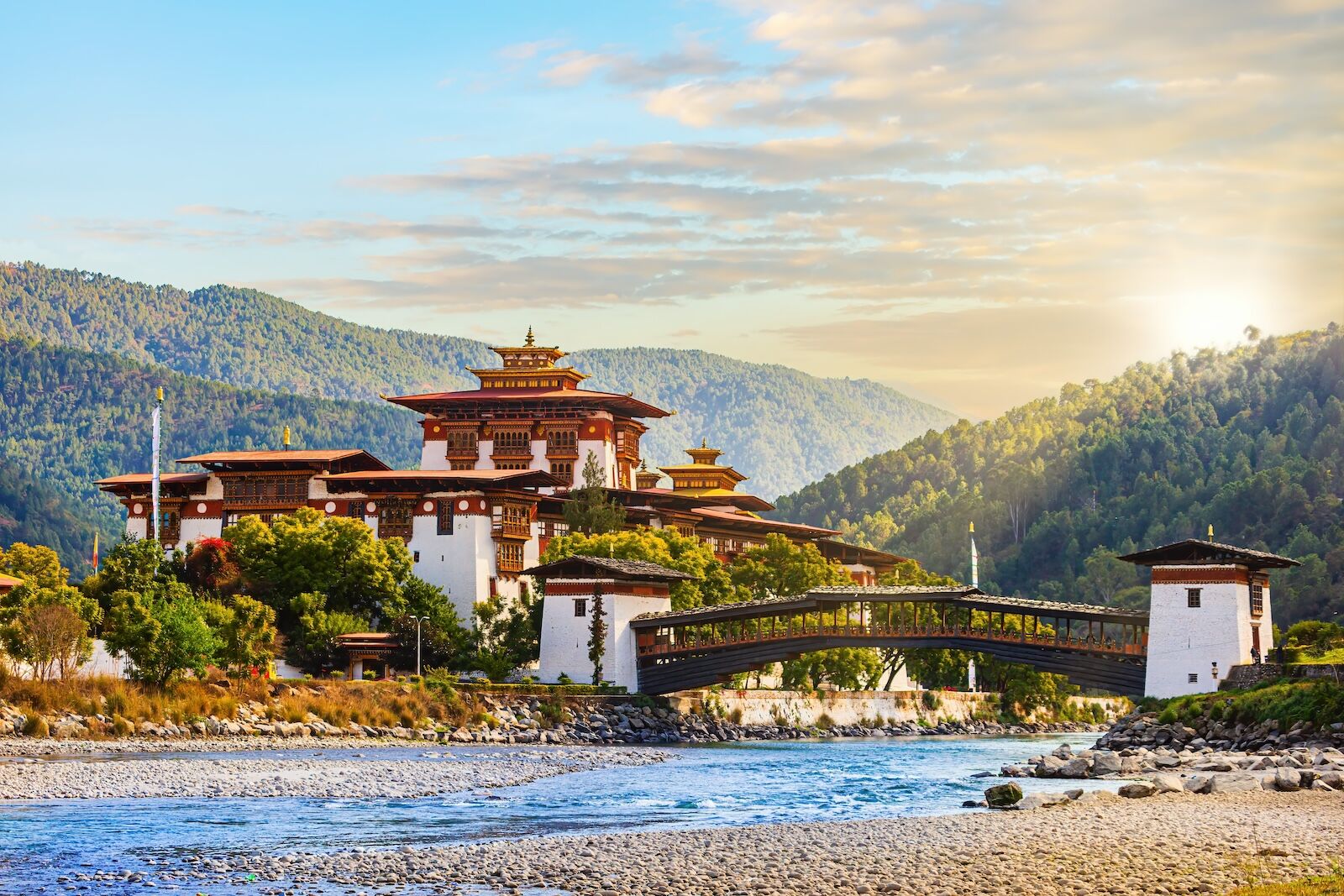It’s not just a revenue generation plan, but also a strong signal that the city is taking overtourism seriously. It represents a 900 percent increase in the maximum tourists may pay per night, as the current tax is capped at 1,000 yen per night.
Tourism is booming — and straining the city’s resources

Photo: javarman/Shutterstock
Kyoto’s popularity has surged to all-time highs. The city welcomed 10.88 million foreign tourists in 2024, with another 56 million domestic tourists. It was a drastic jump over 2023, which saw 50.28 million total visitors to Kyoto. It’s a travel boom seen in other towns in Japan as well, with the country seeing 36.87 million international visitors in 2024 — more than 10 million more than it saw in 2023. Tourist visits to the country have been growing exponentially since 2023, the first year it surpassed 10 million international visitors.
Kyoto, with its UNESCO-listed temples, impossibly sculpted gardens, and postcard-perfect alleys, is seeing more than its fair share of that growth. While it’s economically beneficial to some degree, it’s also led locals to raise concerns about issues like overcrowded public transportation and attractions so crowded that schools have cancelled class field trips. Geishas in traditional parks of the city have been swarmed by foreign tourists trying to take photos, waving selfie sticks is banned in many parts of the country, and famous Mount Fuji introduced daily caps on tourist numbers.
For Kyoto, it seems the answer is raising its tourist tax. The proposal was approved by the national government in early October 2024, and includes a tiered pricing system, rather than a percentage of the hotel room cost. The per person, per night fee for budget lodgings (under 6000 yen, or about $40), will stay the same, at 200 yen per night (about $1.32). Guests at hotels costing up to $133 per night will pay 400 yen (about $2.66) per person, while tourists at hotels costing up to $332 per night will be charged 1000 yen each (about $6.64).
Travelers staying at luxury hotels will see the biggest increases in taxes. Hotels priced between $332 and $664.50 will pay 4,000 yen, or about $26.58, per night. And visitors booking the priciest hotels — those costing $664.50 per night or more — will pay 10,000 yen, or about $65.80, per person, per night. All charges are per person, so a couple in a luxury ryokan will pay an extra $133 per night starting in March 2026. Until then, the fee is only $6.58 per person, per night.
The announcement from the city notes that the tiered system is designed to promote sustainable tourism and collect funds from visitors who can afford to pay more without straining budget travelers. Student groups are exempt from the tax.
When it goes into effect, it’ll be the highest tourist tax in all of Japan, with other busy cities like Tokyo and Osaka charging only a few hundred yen per night. According to Japanese news sources, the revenue will be used for improved transportation, public services, and projects to protect the city’s many cultural sites. City officials said they expect the new tax to bring in roughly $82 million (12.6 billion yen) next year, as opposed to the $32.8 million (about 5.91 billion yen) it’s brought in since it was introduced in 2018. The 2026 increase will be the first time the city has raised the tax.
It could be a sign of more tourist taxes to come

At $100 per day, Bhutan’s :Sustainable Development Fee” is one of the steepest tourist taxes in the world. Photo: Framalicious/Shutterstock
The rate at which Kyoto raised its tourist tax is making headlines, but it’s hardly the only destination asking tourists to fund overtourism-related projects. Tourist taxes have existed throughout Europe since 1910, when Rome introduced a tassa di soggiorn, or stay tax, to fund city infrastructure repairs. In 2025, Venice tested a five-euro entrance fee for day trippers, and officials in Rome have suggested charging a fee to visit specific public attractions, like the Trevi Fountain. Recently, Amsterdam in the Netherlands announced an aggressive plan to battle overtourism, which includes a nightly tax of seven percent, based on the nightly hotel rate.
While those fees bring in funds, the low rates don’t necessarily deter tourists. However, some countries have rates high enough that they may keep some visitors away, such as Bhutan. The Himalayan kingdom charges a $100 per night, per person fee for international visitors, and fragile Volcanoes National Park in Rwanda charges foreign visitors $1,500 to spend one hour with the park’s critically endangered mountain gorillas. In the US, popular destinations like New York and San Francisco have tourist taxes based on hotel rate, with NYC charging up to 14.75 percent per night. ![]()


AloJapan.com